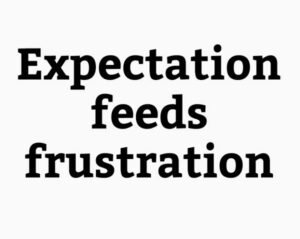
If you made it this far, you are ready to throw your old strategies to the curb. This CONSIDER the BRAIN business sounds promising. Let me tell you none of this will be easy. Throwing away your usual ways of doing things is never easy. Getting the school on board is daunting. Learning how to see your child differently will be tough. But the rewards are endless. For your child is walking around feeling misunderstood. They often feel like they are a failure because certain areas are just too hard for them no matter what they do. They may be feeling like they are unlovable as they just keep getting trouble over and over again. This new approach can help! Read on to begin your CONSIDER the BRAIN parenting journey.
Expectations
One of the tricky parts of FASD is that it is invisible and most times those with FASD are great talkers and look completely normal. It is super easy to imagine the 13-year-old in front of you should be able to do 13-year-old things. Especially if they could do it yesterday. Tricky part about FASD is that some days your child will not be able to retrieve the information from their brains to do certain tasks. It’s infuriating and so hard to understand for both parents and teachers. And then of course there is the expectation to act your age. Problem is if you have FASD, chances are in some areas you are 3 to 5 years younger that your number age. As a parent, when we CONSIDER the BRAIN, we learn to lower our expectations. We parent the child we have that day and we hold them up in the areas they struggle no matter their age.
 Parent-Child Connection
Parent-Child Connection
As parents, FASD or not, your priority needs to be your connection with your child. To best support them, you must have a genuine bond with your child. You get this closeness when you spend time together, truly seeing your child, reflecting their uniqueness, and making it clear to them that they are your # 1. That means sometimes you have to dump what you wish for, what your values are, for what your child needs. It’s a tricky balance. But as you parent from this CONSIDER the BRAIN lens, your success will always come back to having that solid and secure relationship with your child. So don’t forget to have fun together, to laugh, to play hooky some days, and to wrap your arms around your child, no matter their age, and tell them you love them.
Structure and Routine
Prediction requires a high level of brain functioning that those with FASD don’t always have. Some days are better than others. Knowing ahead of time how your day will look, what you can expect, what possible changes you may encounter, and what others are expecting of you allows the brain to concentrate on the tasks at hand. Using visual schedules and constant previewing of what they can expect is a must for children with FASD. BOTH at home and school. And remember to keep things simple, consistent, specific, and concrete. CONSIDER the BRAIN!
Teach Skills
A famous child psychologist once said if children can, they will. In other words quit thinking your child is lazy, bad, unmotivated, and oppositional. Instead put on your CONSIDER the BRAIN cap and believe your child is lacking skills or maybe they even forgot that skill. Remember people with FASD truly do forget how to do some things from one day to the next. It is real! So you need to figure out what areas they need help in. And teach and teach until they get there. You will hear your child take an audible sigh of relief once you figure this out and begin to teach lagging skills instead of giving consequences.
School
That’s a whole other Newsletter. Until then, bring experts, advocates and friends in to train the teachers and staff about FASD and your child. Teach the school about the CONSIDER the BRAIN approach as often as you can. Ask for specific accommodations that work for your children. Be insistent and consistent. Ask for no or adapted homework as getting through a school day is exhausting for your child with FASD. Share the 8 Magic Keys video with your school. Make sure teachers know that research shows us that your child can most certainly learn and repetition is key to this learning. Let your child have a day off from school sometimes. And don’t forget to praise them for all their hard work at school regardless of their grades.
Sleep, Nutrition, and Movement
We all do better with a full belly of healthy food after a great night of sleep and a regular exercise routine. People with FASD are no different. However they are more sensitive if they are lacking these crucial 3 things. Their nervous systems are way more fragile then you might expect. It takes more energy to get through the day if you have FASD. Being hungry or tired truly effects one’s brain’s abilities. When we move our bodies, our brain works better. Remember to build these important elements into your child’s daily schedules and be as consistent as possible using visual, auditory and even musical cues. So part of CONSIDER the BRAIN is remembering to help your children to eat, sleep and, move every day!

Please know this is just the tip of the iceberg about helpful CONSIDER the BRAIN strategies that truly will change your child’s life. To learn more, please check out this excellent resource.





